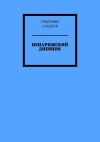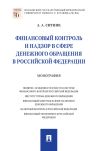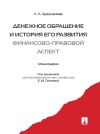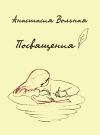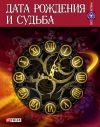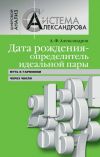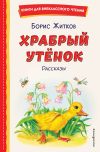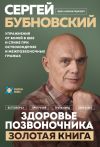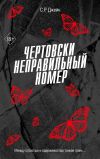Текст книги "Бонусные годы. Индивидуальный план продления молодости на основе последних научных открытий"
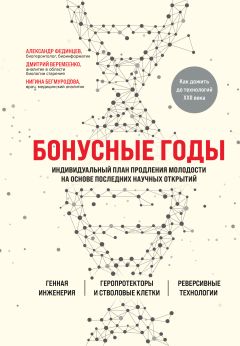
Автор книги: Дмитрий Веремеенко
Жанр: Медицина, Наука и Образование
Возрастные ограничения: +12
сообщить о неприемлемом содержимом
Текущая страница: 12 (всего у книги 40 страниц) [доступный отрывок для чтения: 13 страниц]
38. Рисунок 7. (Электронный ресурс) URJ: https://pxhere.com/ru/photo/726931 (дата обращения: 28.12.2020).
39. Franz M.J. The argument against glycemic index: what are the other options? Nestle Nutr Workshop Ser Clin Perform Programme. 2006;11:57–72. doi: 10.1159/000094406. www.ncbi.nlm.nih.gov/pubmed/16820731 (дата обращения:
28.12.2020).
40. Runchey S.S., Pollak M.N., Valsta L.M. et al. Glycemic load effect on fasting and post-prandial serum glucose, insulin, IGF-1 and IGFBP-3 in a randomized, controlled feeding study. Eur J Clin Nutr. 2012 Oct;66(10):1146-52. doi: 10.1038/ejcn.2012.107. www.ncbi.nlm.nih.gov/pubmed/22892437 (дата обращения: 28.12.2020).
41. Turati F., Dilis V., Rossi M. et al. Glycemic load and coronary heart disease in a Mediterranean population: the EPIC Greek cohort study. Nutr Metab Cardiovasc Dis. 2015 Mar;25(3):336-42. doi: 10.1016/j.numecd.2014.12.002. www.ncbi.nlm.nih. gov/pubmed/25638596 (дата обращения: 28.12.2020).
42. Vasto S., Rizzo C., Caruso C. Centenarians and diet: what they eat in the Western part of Sicily. Immun Ageing. 2012 Apr 23;9(1):10. doi: 10.1186/1742-4933-9-10. www. ncbi.nlm.nih.gov/pubmed/22524271 (дата обращения: 28.12.2020).
43. Foscolou A., Magriplis E., Tyrovolas S. et al. The association of protein and carbohydrate intake with successful aging: a combined analysis of two epidemiological studies. Eur J Nutr. 2019 Mar;58(2):807–817. doi: 10.1007/s00394-018-1693-2. www. ncbi.nlm.nih.gov/pubmed/29687264 (дата обращения: 28.12.2020).
44. Fan J., Song Y., Wang Y. et al. Dietary glycemic index, glycemic load, and risk of coronary heart disease, stroke, and stroke mortality: a systematic review with metaanalysis. PLoS One. 2012;7(12):e52182. doi: 10.1371/journal.pone.0052182. www. ncbi.nlm.nih.gov/pubmed/23284926 (дата обращения: 28.12.2020).
45. Arthur A.E., Goss A.M., Demark-Wahnefried W. et al. Higher carbohydrate intake is associated with increased risk of all-cause and disease-specific mortality in head and neck cancer patients: results from a prospective cohort study. Int J Cancer. 2018 Sep 1; 143(5):1105–1113. doi: 10.1002/ijc.31413. www.ncbi.nlm.nih.gov/pubmed/29604042 (дата обращения: 28.12.2020).
46. Meyerhardt J.A., Sato K., Niedzwiecki D. et al. Dietary glycemic load and cancer recurrence and survival in patients with stage III colon cancer: findings from CALGB 89803. J Natl Cancer Inst. 2012 Nov 21;104(22):1702-11. doi: 10.1093/jnci/djs399. www.ncbi.nlm.nih.gov/pubmed/23136358 (дата обращения: 28.12.2020).
47. ВОЗ призывает страны сократить потребление сахаров взрослыми и детьми. 4 марта 2015 г. Пресс-релиз. Женева. (Электронный ресурс) URJ: www.who.int/ mediacentre/news/releases/2015/sugar-guideline/ru (дата обращения: 28.12.2020).
48. Brown I.J., Stamler J., Van Horn L. et al. Sugar-sweetened beverage, sugar intake of individuals, and their blood pressure: international study of macro/ micronutrients and blood pressure. Hypertension. 2011 Apr;57(4):695–701. doi: 10.1161/ HYPERTENSIONAHA.110.165456. www.ncbi.nlm.nih.gov/pubmed/21357284 (дата обращения: 28.12.2020).
49. Dhingra R., Sullivan L., Jacques P.F. et al. Soft drink consumption and risk of developing cardiometabolic risk factors and the metabolic syndrome in middleaged adults in the community. Circulation. 2007 Jul 31;116(5):480-8. doi: 10.1161/ CIRCULATIONAHA.107.689935. www.ncbi.nlm.nih.gov/pubmed/17646581 (дата обращения: 28.12.2020).
50. Chen L., Caballero B., Mitchell D.C. et al. Reducing consumption of sugar-sweetened beverages is associated with reduced blood pressure: a prospective study among United States adults. Circulation. 2010 Jun 8;121(22):2398-406. doi: 10.1161/ CIRCULATIONAHA.109.911164. www.ncbi.nlm.nih.gov/pubmed/20497980 (дата обращения: 28.12.2020).
51. DiNicolantonio J.J., Lucan S.C. The wrong whitecrystals: not salt but sugar asaetiological in hypertensionand cardiometabolic disease. OpenHeart 2014;1:e000167. doi:10.1136/openhrt-2014-000167. openheart.bmj.com/content/1/1/e000167.full (дата обращения: 28.12.2020).
52. Garber A., Csizmadi I., Friedenreich C.M. et al. Association between glycemic load and cognitive function in community-dwelling older adults: Results from the Brain in Motion study. Clin Nutr. 2018 Oct;37(5):1690–1699. doi: 10.1016/j.clnu.2017.07.011. www.ncbi.nlm.nih.gov/pubmed/28756038 (дата обращения: 28.12.2020).
53. Seetharaman S., Andel R., McEvoy C. et al. Blood glucose, diet-based glycemic load and cognitive aging among dementia-free older adults. J Gerontol A Biol Sci Med Sci. 2015 Apr;70(4):471-9. doi: 10.1093/gerona/glu135. www.ncbi.nlm.nih.gov/pubmed/25149688 (дата обращения: 28.12.2020).
54. Burger K.N., Beulens J.W., Boer J.M. et al. Dietary glycemic load and glycemic index and risk of coronary heart disease and stroke in Dutch men and women: the EPICMORGEN study. PLoS One. 2011;6(10):e25955. doi: 10.1371/journal.pone.0025955. www.ncbi.nlm.nih.gov/pubmed/21998729 (дата обращения: 28.12.2020).
55. Hardy D.S., Hoelscher D.M., Aragaki C. et al. Association of glycemic index and glycemic load with risk of incident coronary heart disease among Whites and African Americans with and without type 2 diabetes: the Atherosclerosis Risk in Communities study. Ann Epidemiol. 2010 Aug;20(8):610-6. doi: 10.1016/j.annepidem.2010.05.008. www.ncbi.nlm.nih.gov/pubmed/20609341 (дата обращения: 28.12.2020).
56. Romieu I., Ferrari P., Rinaldi S. et al. Dietary glycemic index and glycemic load and breast cancer risk in the European Prospective Investigation into Cancer and Nutrition (EPIC). Am J Clin Nutr. 2012 Aug;96(2):345-55. doi: 10.3945/ajcn.111.026724. www. ncbi.nlm.nih.gov/pubmed/22760570 (дата обращения: 28.12.2020).
57. Thomas D., Elliott E.J. Low glycaemic index, or low glycaemic load, diets for diabetes mellitus. Cochrane Database Syst Rev. 2009 Jan 21;2009(1):CD006296. doi: 10.1002/14651858.CD006296.pub2. www.ncbi.nlm.nih.gov/pubmed/19160276 (дата обращения: 28.12.2020).
58. Thomas D., Elliott E.J, Baur L. Low glycaemic index or low glycaemic load diets for overweight and obesity. Cochrane Database Syst Rev. 2007 Jul 18;(3):CD005105. doi: 10.1002/14651858.CD005105.pub2. www.ncbi.nlm.nih.gov/pubmed/17636786 (дата обращения: 28.12.2020).
59. Connolly M.L., Tuohy K.M., Lovegrove J.A. Wholegrain oat-based cereals have prebiotic potential and low glycaemic index. Br J Nutr. 2012 Dec 28;108(12):2198-206. doi: 10.1017/S0007114512000281. www.ncbi.nlm.nih.gov/pubmed/22360862 (дата обращения: 28.12.2020).
60. Castro-Quezada I., Sanchez-Villegas A., Estruch R. et al. A high dietary glycemic index increases total mortality in a Mediterranean population at high cardiovascular risk. PLoS One. 2014 Sep 24;9(9):e107968. doi: 10.1371/journal.pone.0107968. www.ncbi. nlm.nih.gov/pubmed/25250626 (дата обращения: 28.12.2020).
61. Appleby P.N., Crowe F.L, Bradbury K.E. et al. Mortality in vegetarians and comparable nonvegetarians in the United Kingdom. The American Journal of Clinical Nutrition. 2016 Jan;103(1):218–230. https://doi.org/10.3945/ajcn.115.119461 https:// academic.oup.com/ajcn/article/103/1/218/4569305 (дата обращения: (дата обращения: 29.12.2020).
62. Poff A.M., Ari C., Seyfried T.N. et al. The ketogenic diet and hyperbaric oxygen therapy prolong survival in mice with systemic metastatic cancer. PLoS One. 2013 Jun 5;8(6):e65522. doi: 10.1371/journal.pone.0065522. www.ncbi.nlm.nih.gov/ pubmed/23755243 (дата обращения: 28.12.2020).
63. Rieger J., B hr O., Maurer G.D. et al. ERGO: a pilot study of ketogenic diet in recurrent glioblastoma. Int J Oncol. 2014 Jun;44(6):1843-52. doi: 10.3892/ ijo.2014.2382. Epub 2014 Apr 11. www.ncbi.nlm.nih.gov/pubmed/24728273 (дата обращения: 29.12.2020).
64. Gardner C.D., Trepanowski J.F., Del Gobbo L.C. et al. Effect of Low-Fat vs Low-Carbohydrate Diet on 12-Month Weight Loss in Overweight Adults and the Association With Genotype Pattern or Insulin Secretion. The DIETFITS Randomized Clinical Trial: JAMA. 2018 Feb 20;319(7):667–679. doi: 10.1001/jama.2018.0245. www.ncbi.nlm.nih. gov/pubmed/29466592 (дата обращения: 29.12.2020).
65. Howick J., Glasziou P., Aronson J.K. The evolution of evidence hierarchies: what can Bradford Hill’s ‘guidelines for causation’ contribute? J R Soc Med. 2009 May;102(5):186-94. doi: 10.1258/jrsm.2009.090020. www.ncbi.nlm.nih.gov/pubmed/19417051 (дата обращения: 29.12.2020).
66. ВОЗ. Вопросы и ответы о канцерогенности красного мяса и мясной продукции. Октябрь 2015 г. (Электронный ресурс) URJ: www.who.int/features/qa/cancer-red-meat/ru (дата обращения: 29.12.2020).
67. Pierozan P., Andersson M, Brandt I. et al. The environmental neurotoxin 0-N-methylamino-L-alanine inhibits melatonin synthesis in primary pinealocytes and a rat model. J Pineal Res. 2018 Aug;65(1):e12488. doi: 10.1111/jpi.12488. www.ncbi.nlm. nih.gov/pubmed/29528516 (дата обращения: 29.12.2020).
68. Engeset D., Braaten T., Teucher B. et al. Fish consumption and mortality in the European Prospective Investigation into Cancer and Nutrition cohort. Eur J Epidemiol. 2015 Jan;30(1):57–70. doi: 10.1007/s10654-014-9966-4. www.ncbi.nlm.nih.gov/ pubmed/25377533 (дата обращения: 29.12.2020).
69. Abdelhamid A.S., Brown T.J., Brainard J.S. et al. Omega-3 fatty acids for the primary and secondary prevention of cardiovascular disease. Cochrane Database Syst Rev. 2018 Jul 18;7(7):CD003177. doi: 10.1002/14651858.CD003177.pub3. www.ncbi. nlm.nih.gov/pubmed/30019766 (дата обращения: 29.12.2020).
70. Baye E., de Courten M.P., Walker K. et al. Effect of dietary advanced glycation end products on inflammation and cardiovascular risks in healthy overweight adults: a randomised crossover trial. Sci Rep. 2017 Jun 23;7(1):4123. doi: 10.1038/s41598-017-04214-6. www.ncbi.nlm.nih.gov/pubmed/28646140 (дата обращения: 29.12.2020).
71. Kim Y., Keogh J.B., Clifton P.M. Effects of Two Different Dietary Patterns on Inflammatory Markers, Advanced Glycation End Products and Lipids in Subjects without Type 2 Diabetes: A Randomised Crossover Study. Nutrients. 2017 Mar 29;9(4):336. doi: 10.3390/nu9040336. www.ncbi.nlm.nih.gov/pubmed/28353655 (дата обращения: 29.12.2020).
72. Lublin A., Isoda F., Patel H. et al. FDA-approved drugs that protect mammalian neurons from glucose toxicity slow aging dependent on cbp and protect against proteotoxicity. PLoS One. 2011;6(11):e27762. doi: 10.1371/journal.pone.0027762. www.ncbi.nlm.nih.gov/pubmed/22114686 (дата обращения: 29.12.2020).
73. Bridi J.C., Barros A.G., Sampaio L.R. et al. Lifespan Extension Induced by Caffeine in Caenorhabditis elegans is Partially Dependent on Adenosine Signaling. Front Aging Neurosci. 2015 Dec 8;7:220. doi: 10.3389/fnagi.2015.00220. www.ncbi.nlm.nih.gov/ pubmed/26696878 (дата обращения: 29.12.2020).
74. Poole R., Kennedy O.J., Roderick P. et al. Coffee consumption and health: umbrella review of meta-analyses of multiple health outcomes. BMJ. 2017 Nov 22;359:j5024. doi: 10.1136/bmj.j5024. www.ncbi.nlm.nih.gov/pubmed/29167102 (дата обращения: 29.12.2020).
75. Choi H.K., Curhan G. Coffee, tea, and caffeine consumption and serum uric acid level: the third national health and nutrition examination survey. Arthritis Rheum. 2007 Jun 15;57(5):816-21. doi: 10.1002/art.22762. www.ncbi.nlm.nih.gov/pubmed/17530681 (дата обращения: 29.12.2020).
76. Zhang Y., Yang T., Zeng C. et al. Is coffee consumption associated with a lower risk of hyperuricaemia or gout? A systematic review and meta-analysis. BMJ Open. 2016 Jul 8;6(7):e009809. doi: 10.1136/bmjopen-2015-009809. www.ncbi.nlm.nih.gov/ pubmed/27401353 (дата обращения: 29.12.2020).
77. Herraiz T., Chaparro C. Human monoamine oxidase enzyme inhibition by coffee and beta-carbolines norharman and harman isolated from coffee. Life Sci. 2006 Jan 18;78(8):795–802. doi: 10.1016/j.lfs.2005.05.074. www.ncbi.nlm.nih.gov/ pubmed/16139309 (дата обращения: 29.12.2020).
78. Van Gelder B.M., Buijsse B., Tijhuis M. et al. Coffee consumption is inversely associated with cognitive decline in elderly European men: the FINE Study. Eur J Clin Nutr. 2007 Feb;61(2):226-32. doi: 10.1038/sj.ejcn.1602495. www.ncbi.nlm.nih.gov/ pubmed/16929246 (дата обращения: 29.12.2020).
79. Ding M., Bhupathiraju S.N., Chen M. et al. Caffeinated and decaffeinated coffee consumption and risk of type 2 diabetes: a systematic review and a dose-response metaanalysis. Diabetes Care. 2014 Feb;37(2):569-86. doi: 10.2337/dc13-1203. www.ncbi. nlm.nih.gov/pubmed/24459154 (дата обращения: 29.12.2020).
80. Wang L., Shen X., Y. et al. Coffee and caffeine consumption and depression: A meta-analysis of observational studies. Aust N Z J Psychiatry. 2016 Mar;50(3): 228-42. doi: 10.1177/0004867415603131. www.ncbi.nlm.nih.gov/pubmed/26339067 (дата обращения: 29.12.2020).
81. Lucas M., O’Reilly E.J., Pan A. et al. Coffee, caffeine, and risk of completed suicide: results from three prospective cohorts of American adults. World J Biol Psychiatry. 2014 Jul;15(5):377-86. doi: 10.3109/15622975.2013.795243. www.ncbi.nlm.nih.gov/ pubmed/23819683 (дата обращения: 29.12.2020).
82. Kennedy O.J., Roderick P., Buchanan R. et al. Systematic review with metaanalysis: coffee consumption and the risk of cirrhosis. Aliment Pharmacol Ther. 2016 Mar;43(5):562-74. doi: 10.1111/apt.13523. www.ncbi.nlm.nih.gov/pubmed/26806124 (дата обращения: 29.12.2020).
83. Malerba S., Turati F., Galeone C. et al. A meta-analysis of prospective studies of coffee consumption and mortality for all causes, cancers and cardiovascular diseases. Eur J Epidemiol. 2013 Jul;28(7):527-39. doi: 10.1007/s10654-013-9834-7. www.ncbi. nlm.nih.gov/pubmed/23934579 (дата обращения: 29.12.2020).
84. Cardin R., Piciocchi M., Martines D. et al. Effects of coffee consumption in chronic hepatitis C: a randomized controlled trial. Dig Liver Dis. 2013 Jun;45(6):499–504. doi: 10.1016/j.dld.2012.10.021. www.ncbi.nlm.nih.gov/pubmed/23238034 (дата обращения: 29.12.2020).
85. Wijarnpreecha K., Thongprayoon C., Thamcharoen N. et al. Association between coffee consumption and risk of renal cell carcinoma: a meta-analysis. Intern Med J. 2017 Dec;47(12):1422–1432. doi: 10.1111/imj.13621. www.ncbi.nlm.nih.gov/ pubmed/28892303 (дата обращения: 29.12.2020).
86. Lafranconi A., Micek A., De Paoli P. et al. Coffee Intake Decreases Risk of Postmenopausal Breast Cancer. A Dose-Response Meta-Analysis on Prospective Cohort Studies: Nutrients. 2018 Jan 23;10(2):112. doi: 10.3390/nu10020112. www. ncbi.nlm.nih.gov/pubmed/29360766 (дата обращения: 29.12.2020).
87. Guessous I., Dobrinas M., Kutalik Z. et al. Caffeine intake and CYP1A2 variants associated with high caffeine intake protect non-smokers from hypertension. Hum Mol Genet. 2012 Jul 15;21(14):3283-92. doi: 10.1093/hmg/dds137. www.ncbi.nlm.nih.gov/ pubmed/22492992 (дата обращения: 29.12.2020).
88. Cornelis M.C., El-Sohemy A., Kabagambe E.K., Campos H. Coffee, CYP1A2 genotype, and risk of myocardial infarction. JAMA. 2006 Mar 8;295(10):1135-41. doi: 10.1001/jama.295.10.1135. www.ncbi.nlm.nih.gov/pubmed/16522833 (дата обращения: 29.12.2020).
89. Palatini P., Benetti E., Mos L. et al. Association of coffee consumption and CYP1A2 polymorphism with risk of impaired fasting glucose in hypertensive patients. Eur J Epidemiol. 2015 Mar;30(3):209-17. doi: 10.1007/s10654-015-9990-z. www.ncbi. nlm.nih.gov/pubmed/25595320 (дата обращения: 29.12.2020).
90. Rebello S.A., van Dam R.M. Coffee consumption and cardiovascular health: getting to the heart of the matter. Curr Cardiol Rep. 2013 Oct;15(10):403. doi: 10.1007/ S11886-013-0403-1. www.ncbi.nlm.nih.gov/pubmed/23990273 (дата обращения: 29.12.2020).
91. Lopez-Garcia E., van Dam R.M., Qi L., Hu F.B. Coffee consumption and markers of inflammation and endothelial dysfunction in healthy and diabetic women. Am J Clin Nutr. 2006 Oct;84(4):888-93. doi: 10.1093/ajcn/84.4.888. www.ncbi.nlm.nih.gov/ pubmed/17023717 (дата обращения: 29.12.2020).
92. Chen Y., Liu W.H., Chen B.L. et al. Plant polyphenol curcumin significantly affects CYP1A2 and CYP2A6 activity in healthy, male Chinese volunteers. Ann Pharmacother. 2010 Jun;44(6):1038-45. doi: 10.1345/aph.1M533. www.ncbi.nlm.nih. gov/pubmed/20484172 (дата обращения: 29.12.2020).
93. Fontana R.J., Lown K.S., Paine M.F. et al. Effects of a chargrilled meat diet on expression of CYP3A, CYP1A, and P-glycoprotein levels in healthy volunteers. Gastroenterology. 1999 Jul;117(1):89–98. doi: 10.1016/s0016-5085(99)70554-8. www. ncbi.nlm.nih.gov/pubmed/10381914 (дата обращения: 29.12.2020).
94. Li M., Wang M., Guo W. et al. The effect of caffeine on intraocular pressure: a systematic review and meta-analysis. Graefes Arch Clin Exp Ophthalmol. 2011 Mar;249(3):435-42. doi: 10.1007/s00417-010-1455-1. www.ncbi.nlm.nih.gov/ pubmed/20706731 (дата обращения: 29.12.2020).
95. American Institute for Cancer Research. Eat wholegrains, vegetables, fruit & beans. (Электронный ресурс) URJ: wcrf.org/dietandcancer/recommendations/ wholegrains-veg-fruit-beans (дата обращения: 29.12.2020).
96. Cheng H.M., Koutsidis G., Lodge J.K. et al. Tomato and lycopene supplementation and cardiovascular risk factors. A systematic review and meta-analysis. Atherosclerosis. 2017 Feb;257:100–108. doi: 10.1016/j.atherosclerosis.2017.01.009. www.ncbi.nlm.nih. gov/pubmed/28129549 (дата обращения: 29.12.2020).
97. Cheng H.M., Koutsidis G., Lodge J.K. et al. Lycopene and tomato and risk of cardiovascular diseases: A systematic review and meta-analysis of epidemiological evidence. Crit Rev Food Sci Nutr. 2019;59(1):141–158. doi: 10.1080/10408398.2017.1362630. www.ncbi.nlm.nih.gov/pubmed/28799780 (дата обращения: 29.12.2020).
98. Zhang X., Shu X.O., Xiang Y.B. et al. Cruciferous vegetable consumption is associated with a reduced risk of total and cardiovascular disease mortality. Am J Clin Nutr. 2011 Jul;94(1):240-6. doi: 10.3945/ajcn.110.009340. www.ncbi.nlm.nih.gov/ pubmed/21593509 (дата обращения: 29.12.2020).
99. Aune D., Giovannucci E., Boffetta P. et al. Fruit and vegetable intake and the risk of cardiovascular disease, total cancer and all-cause mortality-a systematic review and dose-response meta-analysis of prospective studies. Int J Epidemiol. 2017 Jun 1;46(3):1029–1056. doi: 10.1093/ije/dyw319. www.ncbi.nlm.nih.gov/pubmed/28338764 (дата обращения: 29.12.2020).
100. Mori N., Shimazu T., Charvat H. et al. Cruciferous vegetable intake and mortality in middle-aged adults: A prospective cohort study. Clin Nutr. 2019 Apr;38(2):631–643. doi: 10.1016/j.clnu.2018.04.012. www.ncbi.nlm.nih.gov/pubmed/29739681 (дата обращения: 29.12.2020).
101. Schoenfeld J.D., Ioannidis J.P.A. Is everything we eat associated with cancer? A systematic cookbook review. The American Journal of Clinical Nutrition. 2013 Jan;97(1):127–134. https://doi.org/10.3945/ajcn.112.047142. academic.oup.com/ ajcn/article/97/1/127/4576988 (дата обращения: 29.12.2020).
102. Attanasio O.P., Emmerson C. Mortality, Health Status, and Wealth. Journal of the European Economic Association. 2003 Jun 1;1(4):821–850. https:// doi.org/10.1162/154247603322493168. https://academic.oup.com/jeea/article-abstract/1/4/821/2280794 (дата обращения: 29.12.2020).
103. Lustgarten M. High-Fiber Diets Are Associated With Reduced All-Cause Mortality Risk. 11 months ago. (Электронный ресурс) URJ: https://michaellustgarten. com/2020/01/26/high-fiber-diets-are-associated-with-reduced-all-cause-mortality-risk/ (дата обращения: 29.12.2020).
104. Association between random glucose and all-cause mortality: findings from the mortality follow-up of the German National Health Interview and Examination Survey 1998. BMC Endocrine Disorders volume 18, Article number: 95 (2018) https:// bmcendocrdisord.biomedcentral.com/articles/10.1186/s12902-018-0319-2.
105. Postprandial Hyperglycemia Impairs Vascular Endothelial Function in Healthy Men by Inducing Lipid Peroxidation and Increasing Asymmetric Dimethylarginine: Arginine. The Journal of Nutrition. 2011 Nov;141(11):1061–1068. https://academic.oup.com/jn/ article/141/11/1961/4630511.
106. Seidelmann S.B., Claggett B., Cheng S. et al. Dietary carbohydrate intake and mortality: a prospective cohort study and meta-analysis. Lancet Public Health. 2018 Sep;3(9):e419-e428. doi: 10.1016/S2468-2667(18)30135-X. www.ncbi.nlm.nih.gov/ pubmed/30122560 (дата обращения: 29.12.2020).
Правообладателям!
Данное произведение размещено по согласованию с ООО "ЛитРес" (20% исходного текста). Если размещение книги нарушает чьи-либо права, то сообщите об этом.Читателям!
Оплатили, но не знаете что делать дальше?